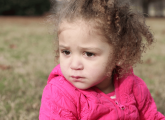While children should lead their own learning, they still need structure to succeed, as Sue Cowley explains…
A key element of an effective early years setting is a sense of routine and order, because with a clear set of structures in place, children are safe to learn. For those who come from a chaotic home environment, it can be difficult to adapt to the expectations of an early years setting. Some may not understand the thinking behind the structures you have in place – they may never have experienced an environment like this before. But it is crucial for their educational success that you help them understand why it is important to play safely and behave sensibly.
Tyler is a four-year-old who moves through your setting leaving a trail of destruction in his wake… So much so, that staff have taken to calling him ‘Tyler the Tornado’. On arrival at your setting, Tyler rushes straight off to play. However, his behaviour is more about creating mayhem than about ‘play’ as you understand it. He dumps toys out of drawers, tips over furniture and shoves the other children around. He seems to have no idea how his behaviour makes other children feel. Tyler finds it impossible to sit still during carpet sessions, and he will often get up and run off during a story. The only time that Tyler seems happy is when you do a sports session. Staff are getting increasingly frustrated at clearing up after him, and they worry about the impact his behaviour is having on the other children.
Learning how to fit within appropriate social structures and rules is crucial for success in education, and in life. Those children who have not had structured input early on in life can struggle with society’s expectations of behaviour. Some children have learned that the only way to get a reaction from adults is to behave in a destructive way; even if the reaction is negative, it feels better than no attention at all. Show your children that they can channel their energy into positive, constructive play instead, to encourage better behaviour.
When a child acts in a destructive manner:
1. Accept that you must help the child learn how to control his destructive impulses, and that this will take time.
2. Try not to get upset or annoyed – the child simply does not understand what ‘appropriate behaviour’ looks like yet.
3. Build an understanding of structures slowly, introducing them gradually, a few at a time.
4. Find ways to pre-empt the problem before it arises, thinking ahead about the resources and activities that are likely to work best for the child.
5. Adapt your setting so that the child has fewer chances to be destructive.
6. Look for positive physical outlets for the child, to help him deal with his frustration.
To help Tyler build his understanding of appropriate behaviour, and become less of a ‘tornado’:
● Be there to greet Tyler when he arrives. Help him settle into an activity, rather than giving him free choice.
● Minimise the chances for him to be destructive, by limiting the amount of smaller toys and resources available when he is in the setting, at least for a while.
● Have a clear routine in place for when Tyler misbehaves, with all staff using the same approach. You might lead Tyler off to a quiet place, so that you can talk about his behaviour and why it is inappropriate.
● Boost Tyler’s self-esteem by praising him when he does play well – look for every opportunity to catch him ‘getting it right’.
● Help Tyler manage his anger by giving him a physical ‘outlet’ for his impulses. For instance, you might get him to bounce a basketball outside when he starts to feel angry.
● Aim to replace destructive behaviour with constructive and creative behaviour. Consider the types of play that most interest Tyler, and guide him towards these. Art activities can often help children who struggle to express themselves.
● Talk with the children about the impact our behaviour has on other people, and why it is important to be kind, to build empathy. You could get staff to role play a scenario where a child is being destructive, and talk about how this makes them feel.
Sue Cowley is an educational author and helps to run an ‘outstanding’ preschool. Visit www.suecowley.co.uk or follow @Sue_Cowley

Social skills – How to help shy children develop them
Editors picks
